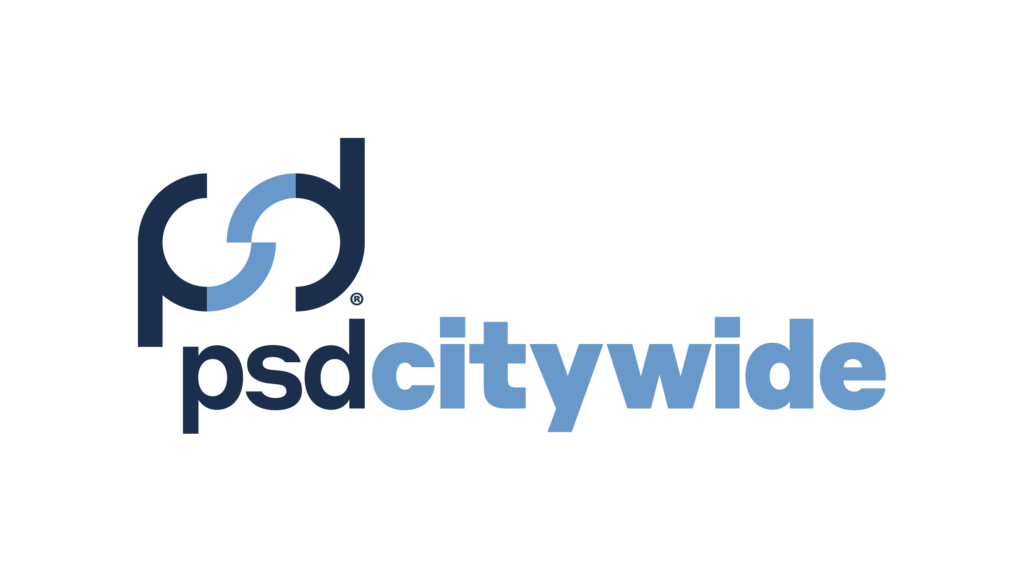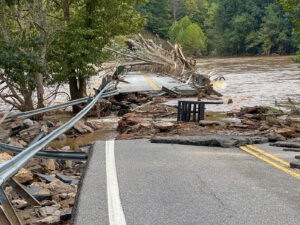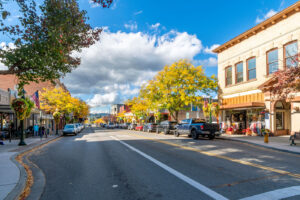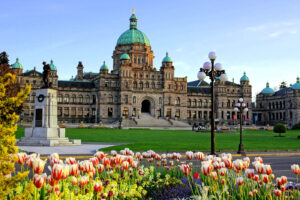Civic mobility infrastructure management and investment in many North American jurisdictions were already facing a breadth of challenges before COVID-19. Mobility as a Service (MaaS), voluminous data consumption, and the trend of customization were disruptors that livable regions needed to adapt to quickly. The advent of this new viral disruptor now threatens to create a new regression towards personal vehicles and compels public planners to act; not just to save existing infrastructure, but to preserve current progress. While it may seem like the pandemic brings on a new set of issues, Moving in a Livable Region asks if there has always been a societal mindset against change, urbanization, and development that we have needed to engage.
Moving in a Livable Region (MLR), an initiative facilitated by the Morris J. Wosk Centre for Dialogue at Simon Fraser University, has set out to engage the public on their understanding of the role of transportation in their lives. The activities of the overall project take four main forms: a roundtable network of organizational stakeholders in Metro Vancouver, a communications platform rooted in education, a citizen deliberative dialogue process, and a community outreach effort for public engagement. At its end, the project seeks to achieve better integration of land-use and mobility planning in Metro Vancouver through a focus lens on the themes of health, equity, economic development, and resilience.
MLR was designed as a Track II process; those in the world of diplomacy are familiar with this process of using backchannel diplomacy to strengthen cooperation. Our process brings together organizations including government entities, TransLink (transit authority), the Mayors’ Council on Regional Transportation, Metro Vancouver (regional planning authority), health authorities, boards of trade, business improvement associations, environmental organizations, active mobility groups, academics, industry representatives, labour, other non-profits, etc. to a consistent roundtable to focus on important issues without reservation. Stakeholders are asked to check their official positions at the door and explore issues, challenges, and strategies together. No one is quoted unless they are giving a public presentation so that participants are able to think creatively and speak candidly.
The roundtable dialogue format allows stakeholders to step outside the antagonistic positional politics that can be characteristic of public setting debates and online exchanges. It’s a model that has yielded many successes. In the last year alone, MLR’s stakeholders have collaborated on supporting a Canadian congestion relief fund, wrote thematic briefing papers on various mobility issues, hosted a federal election all candidates’ forum in partnership with the Vancouver Sun, launched a go-to online information resource on transportation during the pandemic and galvanized a major campaign to support public transportation in the COVID-19 relief efforts.
Engaging Public Values and Trade-offs
When cities want to seek advice from the public, they often create stakeholder consultation processes. Public consultations are often limited in scope and rely on public displays, surveys, web-based portals for feedback or public hearings. While stakeholder processes are critical for seeking expert advice and understanding potential stakeholder positioning, they are rarely helpful in understanding how the public will react to a specific project or transportation plan.
Prior to the onset of COVID-19, MLR set out to launch a series of deliberative dialogues to increase civic education on the impact of transportation and land-use planning on reducing green-house gas emissions and addressing affordability and livability of communities. These dialogues were also designed to increase citizen engagement in setting the community vision, values and priorities and assist decision-makers in gaining an understanding of public trade-offs in the transit development process.
By obtaining a baseline understanding of the public’s values and trade-offs, MLR would then be able to plan out accessible public education communication materials on transportation and land-use planning. In turn, planners would be able to forecast how different communities might react to proposed project designs, consultation efforts, public hearings, and individual projects.
This model of deliberative dialogue supports public education, community building and decision-making based on values and trade-offs. It was a strategy MLR stakeholders wanted to advance to address the low levels of public education and decrease the levels of fear and backlash emerging over some transportation and land-use planning processes.
While it may seem like the pandemic brings on a new set of issues, MLR asks if there has always been a societal mindset against change, urbanization, and development that we have needed to engage.
The Advent of COVID-19
On March 14, 2020, the plan that MLR had outlined took a sharp turn. The outbreak of the virus highlighted the systemic vulnerabilities of communities across the globe. In Metro Vancouver, fear and uncertainty took hold quickly with the emergence of the first public health lockdown measures.
MLR stakeholders quickly identified that the region lacked a platform that clearly communicated all mobility options available to the public during the outbreak and acted immediately to fill that gap. Within 24 hours, MLR designed and created a new, updated COVID-19 web portal that was promoted to the public as the one-stop information resource on walking, biking, transit, driving, sailing, and flying. This portal was updated daily as new information and research about travel options during the pandemic emerged.
This project was made possible through coordination with TransLink, Vancouver Coastal Health, and other organizations and became a highly valued and promoted resource by MLR stakeholders and partner organizations.
The demand for this resource inspired MLR stakeholders to think creatively about how the platform and collaboration could support COVID-19 response efforts and advance the public education mandate of the roundtable.
A Shock to the System
As MLR was educating citizens on transportation in the time of COVID-19 through online dialogues, the collaboration of stakeholders was tested once again when an inevitable – yet alarming – situation was brought to its attention by TransLink. In mid-April 2020, TransLink announced that it needed immediate support from senior levels of government in order to weather the fiscal crisis brought on by COVID-19. They spoke directly with the MLR team about the realities of the situation, including the dire possibility of complete insolvency of the transit authority within the calendar year. Naturally, this compelled MLR stakeholders to act.
Within 48 hours, MLR was able to convene an emergency meeting and strategy planning session with the project’s stakeholders. This meeting allowed MLR stakeholders to hear directly from the Mayors’ Council and Translink what was going on and what needed to be done to address the problem.
In response, MLR stakeholders launched a fullscale public engagement campaign aimed at getting the Government of Canada and the Government of BC to immediately address the funding issue. The campaign delivered top line messages that focused on:
- recognizing the efforts of governments to keep citizens safe during the pandemic;
- profiling transit as an essential service – Metro Vancouver’s healthcare capacity and the resilience of its economy depend on safe, clean, reliable, and efficient public transit.
- highlighting the need for immediate support to enable transit to continue to play a critical role in the response and recovery from COVID-19
Each organization added its own messages and promoted the campaign through various online, print and broadcast channels. At the time of writing, the campaign efforts have seen some hope: The Government of British Columbia has announced interim funding support for transit, avoiding massive service cuts and 1500 employee layoffs. Additionally, on June 5 of 2020, Prime Minister Trudeau announced a $14 billion federal funding partnership with provinces to support a number of services, including transit.
While this is good news and a reassuring sign, the details of this agreement have yet to be finalized, and organizations across Canada, including MLR stakeholders, are actively working to ensure appropriate supports are afforded to transit and active transportation.
MLR will be working to remind the public that while we fight the outbreak, we cannot shrug our responsibility to address the greater risks posed by climate change, affordability, and economic inequality.
Modal Shifts in Post-Covid19 Metro Vancouver
The emergence of COVID-19 has created a new era of transportation and land-use planning. As the region has started to open up and people begin to travel more, there have been some worrying trends. In Asia, we have seen a growth in personal vehicle usage owing to a number of factors. However, when the 2003 SARS epidemic hit, its impact on modal shifts was so significant, the effects are still felt today. According to a Reuters piece titled “China’s 2003 Auto Recovery Will Be Instructive”, auto sales in China were 75 percent higher in 2003 than the previous year. Even when compared to China’s 2000s annual growth rate of car sales at 30 percent, 2003 saw a significant increase at 60- 70 percent.
In Metro Vancouver, MLR stakeholders recognize that we may face a similar challenge as some residents vocalize concern about the safety of public transit and density. Public officials have stated that transit is not a high-risk environment and that there has not been any observed evidence of the spread of COVID-19 through public transit. However, the public will need convincing, and that will take deeper engagement than just an ad campaign.
This brings us back to MLR’s raison d’être; MLR was created to bring stakeholders together to consider our transportation future through the lens of health, resilience, economic development, and affordability and to educate and engage citizens deeply on transportation and land-use planning issues. When the pandemic hit, MLR pivoted, but it did not stray from its original purpose.
Rather than abandoning the citizen deliberative dialogue model, MLR is now pivoting again to engage the public in online dialogues focused on (1) building common understandings of safety and transportation, (2) the role of density and efficient land-use in a post-COVID region, and (3) equitable access to transit by rethinking the farebox model.
While COVID-19 has shifted the speed and circumstances under which MLR engages, it did not take away the need to do so. These citizen dialogues will incorporate an understanding of the safety, and necessity of multi-modal transportation in our dense urban communities. MLR will be working to remind the public that while we fight the outbreak, we cannot shrug our responsibility to address the greater risks posed by climate change, affordability, and economic inequality.
Before COVID-19, MLR was recognized across Metro Vancouver and Canada as a model that should be emulated to improve mobility and land-use planning. After COVID-19, MLR has demonstrated that it is more than just a talk shop; it is a versatile collaborative initiative that deploys its resources to meet urban challenges and advances a vision for Metro Vancouver that is more healthy, equitable, economically viable, and resilient for all.
SHAUNA SYLVESTER is the Lead Convenor of MLR. She is a skilled facilitator, an award-winning social entrepreneur, and a passionate public speaker on urban issues, democratic development, and climate solutions. Shauna has founded five initiatives including SFU Public Square, Carbon Talks and Renewable Cities, Canada’s World and IMPACS—the Institute for Media, Policy and Civil Society, a media and democracy organization that operated in Canada and conflict and post-conflict zones globally. Shauna is a Professor of Professional Practice in the Faculty of Arts and Social Sciences and serves as the Executive Director of the SFU Morris J. Wosk Centre for Dialogue.
JUDE CRASTA is the Program Manager for MLR. He is a communicator, designer, strategist, and entrepreneur who likes to work on the front lines of ‘head-scratcher’ projects that have a larger social impact. Jude comes from a background of leadership and support roles in various non-profit organizations. Having partnered with different levels of government, he has worked on issues relating to transportation, infrastructure, education spending, climate change, and innovation disruption. Jude likes to volunteer for causes focusing on the empowerment of newer generations on pressing issues.



